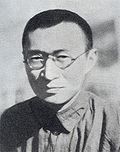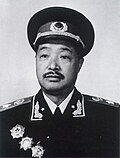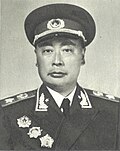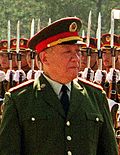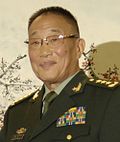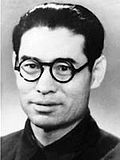| Vice Chairman of the Central Military Commission of the Communist Party of China Vice Chairman of the Central Military Commission of the People's Republic of China | |
|---|---|
| 中国共产党中央军事委员会副主席 中华人民共和国中央军事委员会副主席 | |
 | |
 | |
| Central Military Commission | |
| Status | Deputy national-level official |
| Reports to | Chairman |
| Seat | "August 1st Building", Beijing |
| Nominator | Party Central Committee (party commission) Chairman of the Central Military Commission (state commission) |
| Appointer | Party Central Committee (party commission) National People's Congress (state commission) |
| Term length | Five years, renewable |
| Formation | December 1925 (party commission) October 1949 (state commission) |
 |
|---|
The Vice Chairmen of the Central Military Commission are deputies to the chairman of the Central Military Commission, who is the commander-in-chief of the People's Liberation Army (PLA), the People's Armed Police (PAP) and the Militia.
Contents
- Party commissions
- CCP Central [Revolutionary] Military Commission (1937–49)
- CCP Central Military Commission (1959–present)
- State commissions
- CPG People's Revolutionary Military Commission (1949–54)
- PRC National Defense Council (1954–75)
- PRC Central Military Commission (1983–present)
- References
There are technically two offices with the same name, including the vice chairman of the Chinese Communist Party (CCP) CMC and vice chairman of the People's Republic of China (PRC) CMC. However, under the arrangement of "one institution with two names", they function as one office. [1] According to military regulations, the vice chairmen are granted the rank of General by the virtue of their posts. [2] Since 1997, the vice chairmen have served as the only members of the CCP Politburo holding military rank. [3]
According to the state constitution, the vice state CMC vice chairmen are elected by the National People's Congress after the nomination of the CMC chairman. [4] According to the Party constitution, the Party CMC vice chairmen are officially elected by the CCP's Central Committee. [5] Currently, Zhang Youxia is serving as first-ranked vice chairman and Zhang Shengmin is currently serving as second ranked vice chairman.


